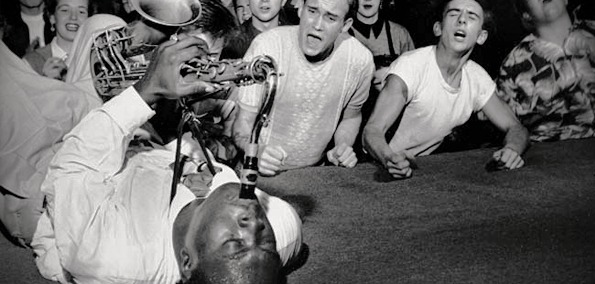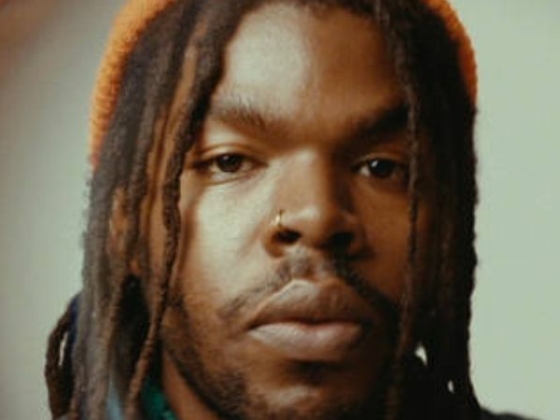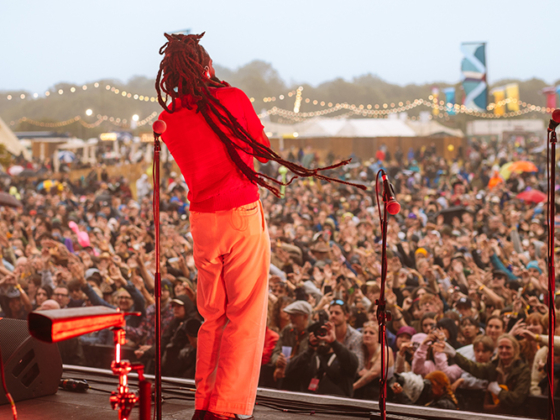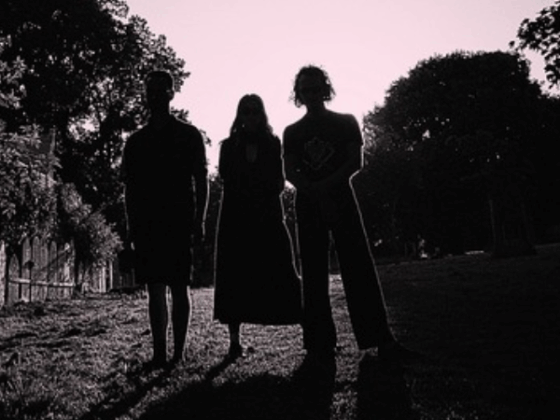Wadada Leo Smith's epic take on the history of the African-American Civil Rights movement is a magnum-opus!
Imagine that you don't know who Wadada Leo Smith is – or, in case you actually don't, wait for me to finish this paragraph, then go do some research and prepare yourself to have a marvelous time exploring a 40-year discography of excellence. In any case, my sentence of choice to open this review, you might say, makes Wadada looks like a film director of some sort. Despite me not being much of a decent writer, that was intentional. To me there's a kind of artist that I like to describe as film directors without films – screw you, I'm not good at titling things. If there still was any doubt about it, Leo Smith now surely falls into this category.
Throughout the last 40 years there has been an enormous production of art inspired by the Black movement for equal rights and the shameful history of slavery, racism and violence; film being arguably the art that has delved deeper into the subject, with varied results, mostly bad ones. Released by Cuneiform Records a little more than a month ago – yeah, I'm also that much of a slow writer – Ten Freedom Summers is so much of a visual, visceral, splendid musical work that I think it's only fair to say that it transcends itself to be one of the greatest epics ever filmed on its subject, without a single camera. (It does not surpasses Manderlay, but then again… who could ever beat von Trier?) It's one of the rare entrees into the pantheon of works that have singularly managed to encompass into itself the scope and strength of Black people's history, or at least a very significant part of it. It is great music – and please understand this in the most ambitious sense you can imagine. It is.
Don't believe the hype!(?)
Well, it's not like me hyping it up means anything. Wadada's name speaks for itself. He is one of the greatest jazzists alive and the most inspired and creative heir to Miles' 70's fusion legacy – last year's album by Wadada Leo Smith's Organic, Heart's Reflections was among the best things to grace the genre in a long time (and if you're looking for more quality fusion, check Yo Miles! Upriver and Yo Miles! Sky Garden, direct homages to the man with the horn.) Ten Freedom Summers showcases Smith at his best; crème de la crème auteurish avant-garde jazz that couldn't be created and played by no one else but him. From opening track "Dread Scott, 1857" to the epic closer "Martin Luther King, Jr.: Memphis, the Prophecy", that's clear as the brightest day.
Inspired by the August Wilson's ten plays covering one century of the African-American experience in America, Ten Freedom Summers is a four and a half hour monster, spread across four discs, and as explained on the man's website, a program for three evenings composed for his much-famed Golden Quartet (composed of, in addition to Leo Smith, pianist Anthony Davis, drummer Pheeroan akLaff and bassist John Lindberg, all of who get the chance to show their unbelievable talents here) and Southwest Chamber Music, an ensemble of nine performers for which some of the pieces on this album were commissioned, beautifully demonstrating Wadada's mastery as a composer, fusing jazz and classical with brilliance. Displaying compositions that date back from as far as 1977, this album is the realization of Wadada's long time dream of paying a tribute to the Civil Rights Movement, "through musical composition/improvisation."
"This musical work is the result of my research and reflection concerning the philosophical, social and political history of the United States of America."
Like I said, it is great music in the most ambitious sense. In all sincerity, fuck Spike Lee – a man who's nothing more than a big farce, if you ask me. Remember the beautiful cover of Bitches Brew? Inspired by the auteur movement, it carried the Directions in music by addendum to Miles'name. And Smith deserved no less than such an addendum here too; he's completely in control of his vision, his form of art and its imagery. Although, from what I gather he seems to be way too modest to do such a thing.
Since we're all goldfish-attention-spam gizmo-whores; I'm uploading the shortest tracks of the album for you, my friends.
But I'll stop with the film thing, I will… I guess… (if you're not lazy, jump this next section and learn from the music.)
Most of the album's songs are titled in reference to important happenings, movements and people in the Civil Rights history. Ranging from Dred Scott's legal fight for freedom back in the 19th century – which ended with the shameful ruling that neither he nor any other person of African ancestry could claim citizenship in the United States; another fine North American blow to democracy (which, despite being a false concept anyway, has its good aspects; nonetheless those were totally crushed here) – to the fervent plain-spoken Fannie Lou Hamer, a strong voice in voting rights activism; a woman who drew attention from the media with her sincere belief, so strong that she would sing Christian hymns to bolster the resolve of her fellow activists when necessary.
Or from the Freedom Summer of 1964, a campaign that attempted to register as many African-American voters as possible in the then notoriously racist state of Mississippi – and which was the inspiration for the album's title, since the summers of 1954 to 1964 can all be referred to as "freedom summers", now that we look back on them – to the Freedom Riders, men and women who rode buses across the segregated Southern U.S. to test the outcome of trials which had outlawed racial segregation in the restaurants and waiting rooms in terminals serving buses that crossed state lines. Courageous, brave acts that, failed or not in their specific intentions, always were victories to the greater ideal: put an end to racism – a worth ideal, even if it will never be accomplished, nowhere.
Last but not least, heroes and victims are placed side to side, each with his/her own undeniable influence in the cause, intentional or not; like little Emmett Till, brutally beaten and murdered for no more than making an innocent pass at a white Southern girl, or Malik Al Shabazz, a man who entered history by the alias of Malcolm X and that in his rights and wrongs helped to strengthen the Black cause.
Other songs question and pay tribute – again, gracefully without the use of a single word – to America itself, to the fateful 9/11, to the inspiring black churches of the past, and to democracy, which shall and should be questioned constantly by the citizens of a country that takes pride in describing itself as the land of the free but has a past and present stained with hatred and racism. I quote Ms. Hamer: "the land of the free and the home of the brave where we have to sleep with our telephones off the hooks because our lives be threatened daily because we want to live as decent human beings…"
Enough with words!
Yes, this album could be a (boring) disaster in many ways. I'm hardly praising it so much because of its message and backdrop. If I measure its merits based only on the music and nothing else, it's no less great than I'm claiming it to be – and now you ask me what's my whole review about then? Many may argue that the music in Ten Freedom Summers would be less powerful had it not been inserted into this planned concept by the artist. If I may present a rebuttal, go fuck yourself with a cactus.
I'll explain: there's more examples than one can count of average music being praised only on the merits of one of its aspects, lyrics being the most common case. What's beautiful with Wadada's creations here is that he has given us a context, and its imagery can be lived by us through the music, no doubt, but at the same time, there's much more to be evoked by the songs precisely because they can beautiful, creative and daring outside of any pre-given context. He has not tied the compositions themselves to any meaning; there's no lyrics, no spoken word, no nothing. Unlike films, titles are not bound to a song and the man cleverly uses this fact to the music's favor.
I did spent most of the review, though, speaking of the album's theme because that's the auteur intention. And Wadada Leo Smith is an auteur. However, like all the brilliant ones, he doesn't allow his intentions to be the whole of his art. Interpretation is free to the listener's creativity.
[youtube]https://www.youtube.com/watch?v=qOhxRZ_lu1Q&feature=player_embedded[/youtube]
Truth be told, so far the best moment in my listenings happened to be the sounds of violins and flute on "Medgar Evers: A Love-Voice of a Thousand Years' Journey for Liberty and Justice", evoking for me nothing more than the image of green grass under a tall tree, shining under the sunlight in spots where the tree leaves and branches let it pass. Like a scene from a Terrence Malick film.
It would be pretentious of me to say much about the music now. It has only been a month. Music lovers will agree that amazing music takes much more time than that to be fully appreciated. Hell, it took me one year to understand how excellent Radiohead's OK Computer is. And that's far from being my favourite album – it's not even my favourite Radiohead album. So, I'm not that much of an arrogant fool to think I can actually review the music in Ten Freedom Summers without sounding stupid and derivative, producing no more than an exercise in futility. I write this hoping that you will listen to the album, and that you'll find your own words to describe its magnificence – or not. And that's it.
- Wadada Leo Smith Official Website
- Wadada Leo Smith at Facebook
- Buy Ten Freedom Summers on Amazon.com (mp3)
- Buy Ten Freedom Summers on iTunes Store (mp3)











